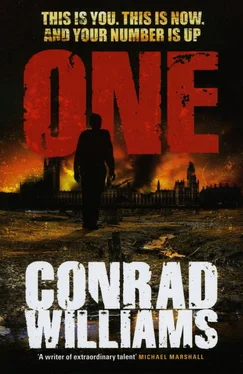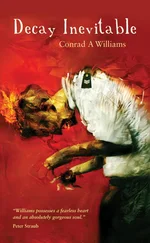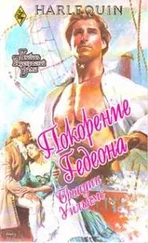Jane suddenly, reflexively, shouted his son’s name. He realised he was running, sprinting, as if he might cover the hundreds of miles between here and Maida Vale before dawn. He wanted his boy so badly that he thought his heart would clench itself into a knot. Tears drizzled across his vision; he had to stop. He dropped to his knees and cried so violently that it felt as though he had pulled a muscle in his chest. He was nodding. Cars and lorries and coaches threw freakish shapes across the lanes for miles in either direction. He wished he’d been caught in this. He wished he had never left his family. He cursed the moment he had signed up for diving lessons and applied for a job on the rigs. He wished he had been infertile and had never met Cherry. He wished for utter oblivion.
‘I know,’ he said. ‘I know.’
He was fooling himself. This was no isolated event. The whole country had been hit by this. Depth , he thought. Cherry might have taken their son on the Tube. He might be safe. He must be safe.
Jane kept his eyes on the ground and watched it disappear under his feet. At the English border he passed three flagpoles bearing flapping black scraps; a blistered sign might have bade welcome to his country. He did not look up. He didn’t know how far he had walked before the light changed and began to creep across the rocky coastline and seep through the mist, to bring edges to the darkness. He rummaged in cars, trying not to touch their ruptured occupants, until he found a pair of sunglasses in a glove compartment. All the time he was trying to quell his panic, trying to assess himself for the signs of shock. It would be almost criminal to survive whatever had happened only to succumb to heart failure. When the traffic became too much for him to deal with, he cut across a field to the railway. The rain came again; it never really went away, just a variation between gossamer breath and tropical muscle.
At Berwick-upon-Tweed he climbed up onto the railway station platform and angled along Castlegate. He had to step over the bodies of three people who had dropped dead in the entrance of a Somerfield supermarket. The windows had survived but were little more than opaque mosaics. Rats had been at the corpses’ faces and fingers. Rats too had ransacked the shelves. Plastic-wrapped loaves of bread had become culture specimens. Popcorn had exploded out of its microwave-ready packaging and created a foam in the aisle. Racks of vacuum-sealed ham slices were molten twists of biltong. Cans were pitted and scarred. He saw a tooth embedded in a plastic container of washing detergent. The newspapers and magazines were shredded, leeched of colour.
The freezers had all failed. The smell of rot permeated the bicycle mask, but it didn’t spoil his hunger. He headed into the storage space at the back of the shop; here there were tinned foods that had survived any damage. He wrenched open the thing nearest to him: a can of pilchards; wolfed them down. He hated pilchards, but flavour and texture meant nothing: he couldn’t taste anything beyond the chemical coating that layered his throat. He ate a can of corned beef and a can of pears. He felt the flakiness that comes with low blood sugar dissipate. He welcomed the false optimism that always accompanied a full stomach. He searched the delivery bay at the back of the shop and found a dead man who had been welding a broken railing to a gate. His goggles were by his side; Jane put them on, discarding the sunglasses. He transferred a Stanley knife from the tool bag to his rucksack. He moved back through the shop and found a crate of glass bottles of water, shrink-wrapped plastic torched off. He drank half a litre; it tasted funny – maybe it had boiled inside the glass – but he kept it down. He placed a couple of the bottles in his rucksack.
Jane stopped in the town centre at a camping shop and took a waterproof coat and hat. He found some more gloves; the current ones smelled scorched, were already weakened across the backs where the rain had settled. He thought again about a weapon, not for use against any foe – he doubted that the rats would grow any more confrontational – but as reassurance, insurance. He had the Stanley knife but he didn’t think he could use that; it would be too much like an insult to Stopper’s memory.
He walked down to the parade of shops, but there was no chance of a gun here. Again he thought of breaking into some houses; surely there were hunters in this bucolic part of the country? His own grandfather had owned a shotgun, and he was from industrial Widnes. But he didn’t feel as though he could stomach the inevitable bodies. Or perhaps it was something else. Perhaps it was the fear of finding someone alive.
He shuddered, shook the feeling out of himself. It was just an inevitable result of so much open space. You grew used to the silence quickly, especially coming a little inland, away from the waves. You went beyond that super-attenuated aspect, flinching at every sound, every shadow. You learnt the beats of the humdrum quickly. It would spook him now, to see someone moving through the streets, or hear them calling to him from a rooftop. But he had to hold on to the hope. Accidents happened. People survived. It could only be a matter of time.
No hope here, though. The soles of his feet slapped echoes around the walls. He thought he could hear his own breath reflected back at him but it might have been the churning sea, still audible over half a mile away. Skirls of glistering dust swept along the street, creating little dunes and hillocks where it met overturned cars, doorways, corpses. Behind a bus slewed across the thoroughfare, Jane was shocked and excited to see a horse lying at the mini-roundabout on Marygate, where the West Road reached out across the old bridge. The horse seemed badly injured, but there was life in it yet; it was struggling to get up. Jane hurried to it, wondering if it might help him to cover ground more quickly if he could nurture it back to health. He stopped twenty feet shy of the creature, hope puddling out of him. The horse was dead. What he had thought was life was the writhing of rats animating the horse from within. He turned away sharply and followed the road south, wondering how long it might be before he was given the same treatment.
He crossed the river Tweed via the railway viaduct. He stopped counting bodies in the water when he reached fifty. A train was halted halfway across the bridge. Burnt strips of curtain danced from the left-hand windows. As he neared the train he saw a woman’s arm resting casually on the window frame, fingers splayed slightly as if she had been holding an apple. Something, perhaps the rain, perhaps a crow or rat, had stripped the flesh to the bone. He strode past the windows, boots crunching on gravel and glass, and did not look in at the sunken creatures in their seats. He stepped around more bodies that had either been thrown free of the train or had jumped in extremis , perhaps with their lungs already boiling up in their throats.
He was beginning to wish that he had stayed on the road, but a glance to the parallel bridge showed him traffic piled up; an articulated lorry jackknifed, hanging over the side, somehow defying gravity. Jane kept his eyes on the horizon, looking for a break in the mist, a return to normal cumulonimbus and cirrus. Already, the thought of blue skies was difficult to remember. The colour seemed too unnatural, too bizarre. Everything was muted, dun. There was nothing to claim his attention: no boats offering rescue, no packs of rescuers hunting through the wreckage for survivors. Only the heat and the diffuse light in those deep-shade zones of rust and ochre, fading now, suggested that it was daytime. Lightning skittered on the underside of the cloud mass, like a white spider clinging to the ceiling. More fires raged in a cluster of houses on the south bank of the river. Smoke rose from others nearby; the rain was doing nothing to check the flames. Jane wondered if its astringent qualities were feeding them in some way.
Читать дальше












